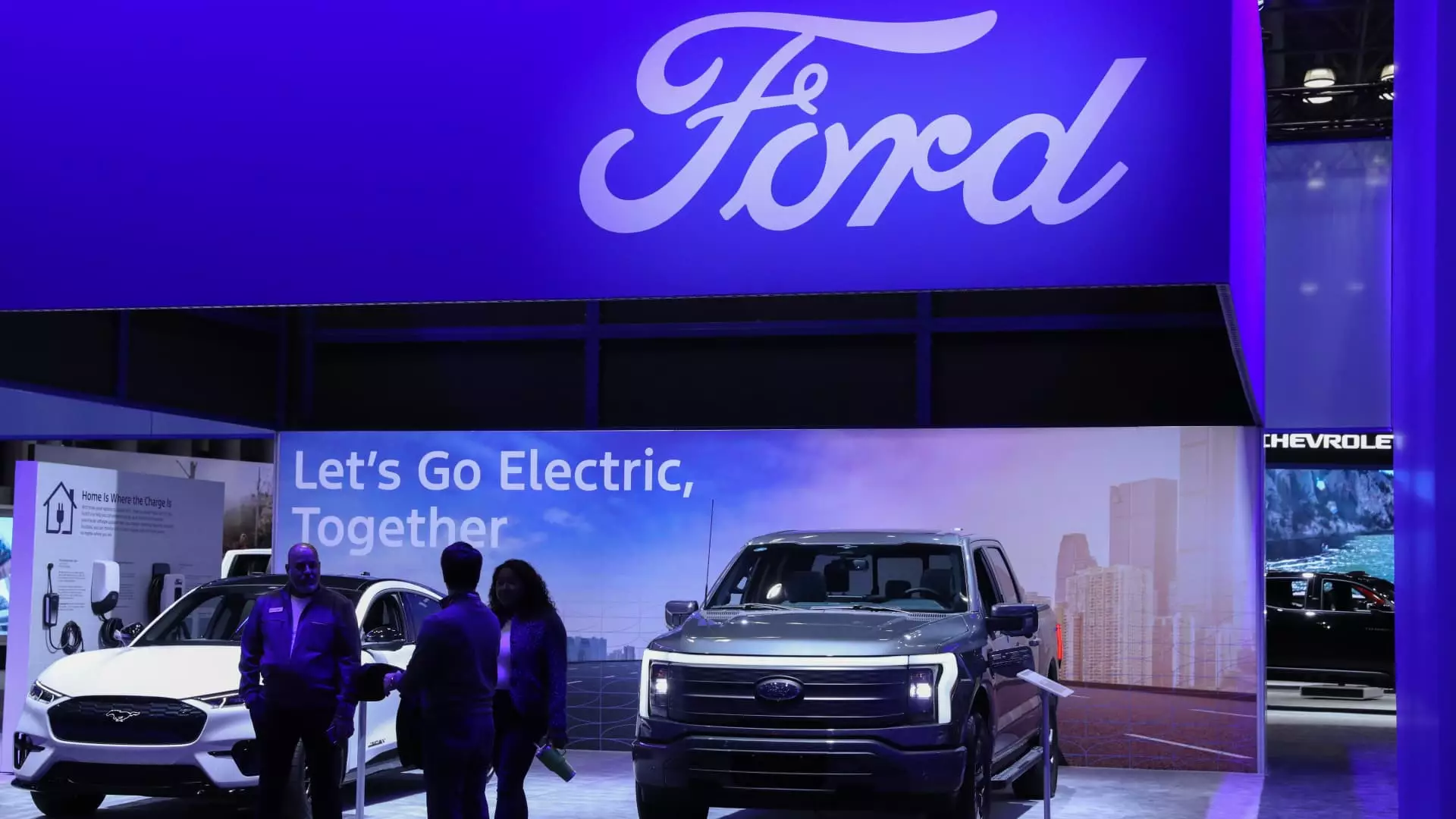Ford Motor recently announced a major shift in its electric vehicle strategy, delaying the production of a next-generation all-electric pickup truck at a new plant in Tennessee. The company also decided to cancel plans for a three-row electric SUV and prioritize the development of hybrid models and electric commercial vehicles. This decision marks a significant change in direction for the automaker, as it aims to focus on areas where it has a competitive advantage.
Instead of moving forward with the planned all-electric pickup truck and three-row electric SUV, Ford will now focus on developing hybrid models and electric commercial vehicles. The company announced plans to introduce a new electric commercial van in 2026, followed by two EV pickup trucks in 2027. The decision to shift priorities is based on market feedback and the need to ensure a capital-efficient and profitable electric vehicle business.
While the new strategy is expected to benefit Ford in the long run, it will incur costs in the short term. The company anticipates a noncash charge of about $400 million for the write-down of certain product-specific manufacturing assets, including the cancellation of the three-row SUV. Additionally, Ford expects additional expenses and cash expenditures of up to $1.5 billion due to the changes in its electrification plans.
Ford’s future capital expenditure plans will now focus more on hybrid models and electric commercial vehicles, shifting from spending about 40% on all-electric vehicles to spending 30%. While the timeline for this change was not specified, the company remains committed to delivering a comprehensive lineup of electrified vehicles in the coming years.
The new $5.6 billion Tennessee plant, which was initially expected to begin vehicle production next year, will now serve as the production site for a full-size EV pickup truck in 2027. Ford still plans to start battery cell production at the site in 2025. These changes reflect Ford’s commitment to adapting to market conditions and ensuring that its investments align with its long-term goals.
Ford’s decision to prioritize the development of electric commercial vehicles stems from its recognition of the growing demand in this segment. By focusing on areas where it has a competitive advantage, such as commercial trucks and SUVs, Ford aims to position itself as a leader in the electric vehicle market while meeting the evolving needs of its customers.
Ford’s revised electric vehicle strategy represents a strategic shift to focus on hybrid models and electric commercial vehicles while delaying the production of certain all-electric vehicles. The company’s decision to prioritize areas where it has a competitive advantage reflects its commitment to delivering a capital-efficient and profitable electric vehicle business. By listening to market feedback and being nimble in its approach, Ford is well-positioned to succeed in the rapidly evolving electric vehicle market.

